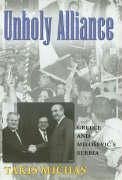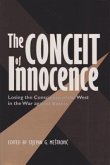As the only member of NATO and the European Union to support Slobodan Milosevic's regime in the conflict following the breakup of Yugoslavia, Greece broke ranks with its Western allies, frustrating their efforts to impose sanctions against Serbia. Distinguished Greek journalist Takis Michas covered the war in the Balkans during the 1990s and saw at first hand the effects of Greek support for Serbia. In this account, he follows Greek-Serbian relations and tackles the difficult question of how the Greek people could ignore Serbian aggression and war crimes. The pro-Serbian stance taken by Athens shocked many who assumed that all members of NATO would follow the lead of the United States and the United Nations. Instead, Greece supported Serbia from the outbreak of war in the former Yugoslavia in 1991 through the NATO bombing and occupation of Kosovo eight years later. Michas combines journalistic accounts with anecdotes and personal interviews to show a pattern of Greek support for Milosevic and Radovan Karadzic that implicates Greek politicians from all parties, as well as the Greek Orthodox Church, the Greek media, and ultimately the Greek people themselves. The evidence and conclusions presented will disturb those who believe that a new liberal order replaced the ideological standoff of the Cold War, but they will not surprise those who suspect that older allegiances have now claimed the loyalties of many of the world's peoples.








